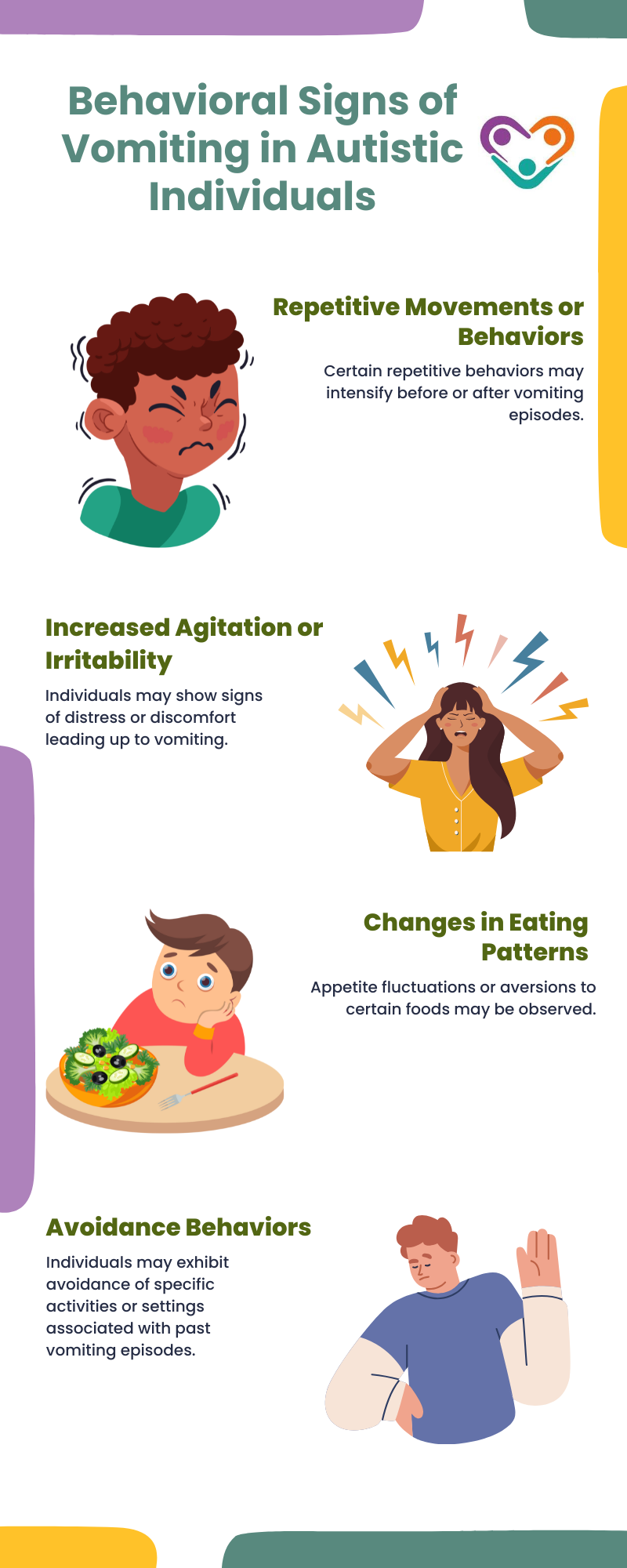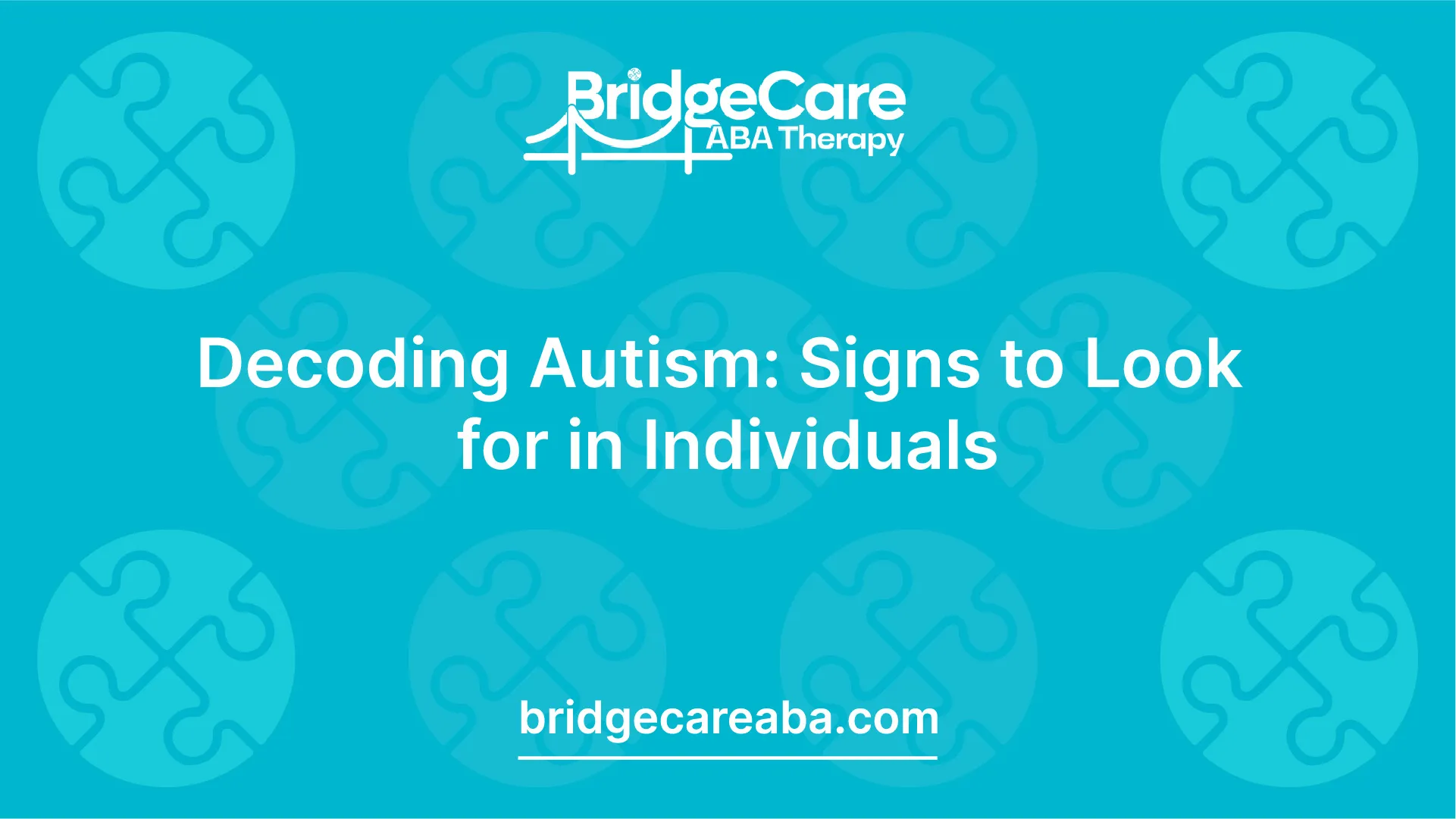Parent-approved list for working with Autism Spectrum Therapies
Parent-approved list for working with Autism Spectrum Therapies
Blog Article
Secret Symptoms And Signs to Acknowledge in People With Behavioral Autism
When you encounter somebody with behavioral autism, identifying crucial signs and symptoms is crucial. You could see difficulties in social communications and interaction, along with a solid need for routines. Furthermore, sensory level of sensitivities can result in overwhelming experiences. Comprehending these qualities can boost your support and interventions, but there's more to reveal about exactly how these actions show up in everyday scenarios. Allow's explore what these indicators truly appear like.
Challenges in Social Interactions
When you engage with someone on the autism spectrum, you might see they battle with social signs and communication. These challenges can make social interactions really feel overwhelming for them. You may see them staying clear of eye call or standing also close or too away throughout discussions, which can create misconceptions. They could not detect body movement or facial expressions, making it harder for them to assess just how others are really feeling.
Furthermore, you may discover that they favor routines and familiar setups, which can restrict their desire to involve in new social circumstances. They could chat about their passions in fantastic detail without seeing if you're interested when they do engage. This can lead to discriminatory discussions that leave you feeling detached. Recognizing these obstacles can aid you approach communications with compassion and perseverance, promoting a more comfy environment for both of you.
Problem With Verbal and Non-Verbal Interaction

Non-verbal interaction can be also much more difficult. You might see a lack of eye get in touch with or restricted use of gestures, which can make communications feel awkward. Faces may not always align with the discussion, causing complication concerning their feelings. Acknowledging these signs is necessary, as it aids you better assistance and involve with people on the autism range. By recognizing their communication obstacles, you can cultivate extra significant connections and give a more helpful setting.
Repeated Habits and Routines
Communication difficulties often go along with other signs of autism, such as repeated habits and a solid choice for routines. You could observe that people with autism frequently involve in certain, repetitive activities, like hand-flapping, shaking, or repeating phrases. These actions can supply comfort and a sense of control in an often overwhelming world.
When they follow a structured schedule,Routines are equally crucial; lots of individuals grow. You may find that changes to these routines can result in considerable distress. For instance, if they have an everyday routine of consuming breakfast at a specific time or complying with a certain path to college, any kind of disturbance can create anxiousness.
Identifying these patterns helps you recognize their behavior and offer assistance. By accommodating their requirement for regular and enabling repeated actions, you can create a much more comfy setting that relieves their difficulties.
Sensory Sensitivities

Usual Sensory Triggers
Sensory sensitivities can substantially affect day-to-day life for people with autism, as certain stimuli frequently activate overwhelming reactions. Typical sensory triggers include loud noises, intense lights, and strong smells. You could discover that sudden sounds, like sirens or alarms, cause stress and anxiety or distress. In a similar way, fluorescent lights in shops can really feel uncomfortable and severe. Structures can also play a considerable function; harsh textiles or specific food textures may be intolerable for you. Furthermore, crowded locations can overwhelm your senses, making it difficult to loosen up or concentrate. Understanding these triggers can aid you handle your environment much better. By recognizing what affects you, you can take steps to reduce discomfort and enhance your day-to-day experiences.
Behavioral Actions Discussed
Understanding your behavior actions to sensory level of sensitivities is crucial, as they frequently disclose exactly how you interact with the world. You could discover that specific audios, lights, or appearances bewilder you, bring about stress and anxiety or pain. When encountered with these stimuli, you could withdraw, cover your ears, and even react boldy. These feedbacks aren't just peculiarities; they're your means of dealing with overstimulation. You may also locate yourself looking for details sensory experiences, like deep stress or peaceful settings, to help ground on your own. Acknowledging these patterns assists you comprehend your demands better visit this site and can guide exactly how you communicate them to others. By recognizing your sensory level of sensitivities, you can work additional info towards producing a setting that really feels a lot more comfortable and manageable for you.
Coping Approaches Review
Acknowledging your sensory level of sensitivities is simply the initial step; currently it's time to explore coping strategies that can assist you take care of those experiences efficiently. Start by producing a sensory toolkit customized to your demands. Establishing an organized regimen can also provide predictability, lowering stress and anxiety around sensory overload.
Restricted Interests and Emphasis
While many people create a vast range of passions, those with autism frequently demonstrate limited interests and an intense concentrate on particular topics. You may notice that a person with autism can spend hours delving right into their preferred subject, whether it's a certain sort of train, a certain flick, or a scientific idea. This intense focus isn't simply a leisure activity; it can become a main part of their identification and social communications.
You might discover that discussions rotate around these interests, and they may battle to involve in broader topics. By recognizing and recognizing these restricted rate of interests, you can foster a supportive setting where they feel valued and understood, permitting for more purposeful links and interactions.
Psychological Guideline Troubles
Individuals with autism commonly face obstacles in psychological guideline, which can be affected by their extreme concentrate on specific rate of interests. You might notice that when an individual is deeply participated in a preferred task, they can experience solid feelings, whether enjoyment or frustration. When things do not go as planned., this intensity sometimes makes it tough for them to shift equipments or handle their feelings - Autism Spectrum Therapies.

Irregularity in Developing Landmarks
When it comes to developmental milestones, you'll discover that individuals with autism frequently show a large range of variability. You might see a kid succeed in language skills yet struggle with social interactions.
It's necessary to recognize that each individual's journey is distinct. Some might establish complex skills early, only to deal with challenges later. Others might take longer to achieve basic landmarks yet visit our website after that grow in specific locations. Observing these patterns can help you recognize their staminas and needs better.
Often Asked Inquiries
Exactly How Is Autism Diagnosed in Children and Grownups?
To identify autism in adults and kids, specialists review actions, interaction skills, and social communications. If a specific fulfills the standards for autism range disorder., they often utilize standard examinations, interviews, and monitorings to establish.
Are There Different Sorts Of Autism Spectrum Disorders?
Yes, there are various kinds of autism range disorders, including Asperger's disorder and pervasive developmental disorder-not or else defined. Each kind differs in extent and attributes, so comprehending these distinctions can help you far better support people with autism.
What Treatments Work for People With Autism?
When thinking about efficient treatments for people with autism, you'll locate choices like Applied Actions Analysis, speech therapy, and work-related treatment. Each method can help enhance interaction, social abilities, and everyday operating tailored to private demands.
Can Individuals With Autism Lead Independent Lives?
Yes, people with autism can lead independent lives. With the ideal support, abilities training, and resources, you can aid them create self-sufficiency, handle daily tasks, and thrive in numerous atmospheres, promoting their freedom.
Exactly How Can Households Assistance Enjoyed Ones With Autism?
You can sustain your loved ones with autism by developing a structured environment, encouraging their rate of interests, exercising persistence, promoting communication, and advertising social abilities. Commemorate their success, despite exactly how tiny, and develop a helpful neighborhood.
Although lots of people on the autism spectrum can recognize and use language, they frequently deal with substantial challenges with both verbal and non-verbal interaction. Recognizing these signs is essential, as it helps you better assistance and engage with individuals on the autism spectrum. You may see that individuals with autism usually engage in specific, repeated activities, like hand-flapping, rocking, or duplicating expressions.Sensory level of sensitivities can significantly affect everyday life for people with autism, as certain stimuli commonly set off frustrating reactions.When it comes to developmental landmarks, you'll see that individuals with autism frequently show a vast variety of variability.
Report this page